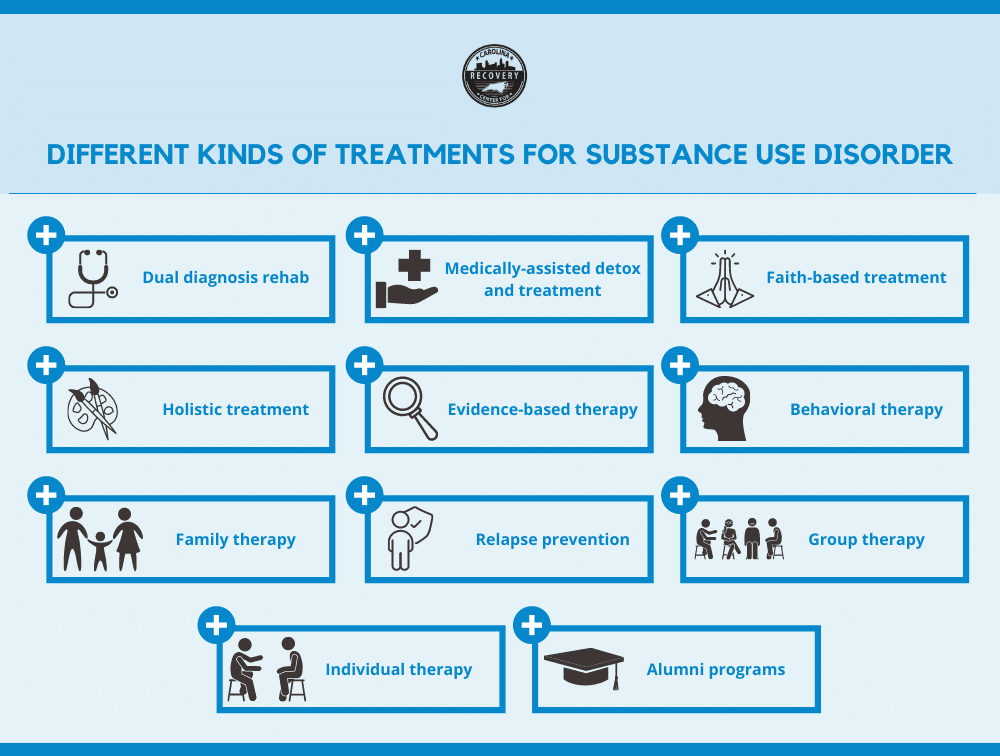Substance Abuse Rehabilitation: A Full Guide to Recuperation
Substance Abuse is among the most pressing wellness and social difficulties encountered by individuals and areas worldwide. It frequently starts as a coping mechanism for emotional distress, injury, or tension, yet can rapidly advance into a reliance that influences every area of life-- psychological wellness, relationships, work, and total well-being. The consequences of addiction are severe and wide-ranging, typically causing physical ailments, economic difficulties, and social isolation. This is why rehab programs exist: to assist people reconstruct their lives and redeem control over their futures.
Comprehending Substance Abuse and the Demand for Recovery
Rehabilitation facilities are made to treat the root causes of dependency rather than just the signs and symptoms. A thorough rehab program includes detoxing, therapy, behavioral treatment, and education and learning on regression prevention. Patients find out to identify triggers and create much healthier methods to manage tension and feelings. In lots of cases, rehab is not nearly giving up drugs or alcohol-- it has to do with uncovering a new sense of purpose and equilibrium. These facilities give an encouraging setting where recovery is not just possible but lasting.
The course to healing calls for guts and dedication, yet with the right treatment, also the most extreme instances of addiction can be effectively taken care of. Rehab programs provide an organized strategy that integrates clinical proficiency, emotional assistance, and peer motivation. Each program is tailored to the individual's needs, ensuring a personalized experience that promotes enduring sobriety. Whether somebody has problem with alcohol, prescription drug, or immoral drugs, getting in a rehab program is usually the first and most essential action towards long lasting healing.
Inpatient vs. Outpatient Rehabilitation: Which Alternative Is Right for You?
When making a decision to seek therapy for Substance Abuse, one of one of the most important choices includes picking in between outpatient and inpatient rehabilitation programs. Both methods have their advantages, and the appropriate choice largely relies on the person's specific needs, addiction intensity, and personal circumstances. Inpatient rehabilitation, additionally called residential rehab, requires patients to live at the treatment facility full time. This permits day-and-night medical supervision, structured schedules, and a distraction-free environment perfect for extensive healing. On the various other hand, outpatient rehabilitation offers higher versatility, permitting people to attend treatment sessions throughout the day while still living in your home and keeping individual or professional duties.
Inpatient recovery is ideal matched for individuals that need clinical detoxing, struggle with long-term dependency, or have formerly slipped back. The immersive atmosphere ensures that people are shielded from exterior lures and stress factors that can set off a regression. Daily treatment sessions, medical surveillance, and group tasks aid clients stay focused on healing. In contrast, outpatient rehab is usually ideal for those with light to modest addiction or solid assistance systems in the house. This kind of program allows people to continue working or going to college while obtaining regular therapy and support.
Eventually, the selection between inpatient and outpatient rehabilitation relies on multiple variables such as addiction type, medical requirements, and lifestyle. Some individuals even shift from inpatient to outpatient treatment as they advance in their recuperation trip - substance abuse treatment Morris County. Both programs share the very same ultimate goal-- aiding patients attain and preserve soberness-- yet the degree of framework and support varies. An extensive assessment by dependency specialists can help figure out the most efficient treatment plan, guaranteeing that each private obtains the care and focus they require to thrive beyond addiction

The Expense important Abuse Rehabilitation and Economic Considerations
One of one of the most common issues for individuals and family members looking for dependency therapy is the expense of recovery. While prices differ extensively relying on the center, program kind, and size of remain, it is very important to see rehab as an investment in one's health and wellness and future rather than just an expense. The cost of unattended addiction-- including shed efficiency, legal issues, clinical difficulties, and harmed partnerships-- often far outweighs the price of expert treatment. Luckily, several rehabilitation centers currently use versatile settlement choices, insurance protection, and financial assistance to make treatment more accessible.
Inpatient rehabilitation programs often tend to be much more pricey than outpatient programs due to the fact that they include holiday accommodation, dishes, and 24-hour medical guidance. Deluxe rehab facilities with high-end centers, exclusive rooms, and alternative treatments can set you back dramatically extra, while community-based or charitable rehabilitations commonly offer budget friendly or even cost-free therapy options. Outpatient rehab is normally much less pricey since it doesn't require overnight stays, however the overall expense can still vary depending on the period and strength of the program. Some insurance plans cover full or partial prices for rehabilitation, particularly if the treatment is regarded clinically essential.
Financial barriers need to never ever protect against somebody from seeking assistance. Lots of therapy centers understand the economic pressure that dependency triggers and agree to collaborate with clients to produce manageable layaway plan. Some supply moving scale charges based on revenue, while others obtain federal government financing to sustain those in requirement. When examining expenses, it's also important to consider the long-lasting benefits: boosted wellness, brought back relationships, and a chance at a more steady and efficient life. Healing is priceless, and the price of rehab is frequently the trick to opening a future devoid of the chains of dependency.
Functions and Facilities of a Quality Rehab Facility
The setting in which recovery occurs plays a vital role in the success of a rehabilitation program. A high quality rehabilitation facility is greater than simply a medical center-- it is a recovery sanctuary created to support the mind, body, and spirit. The finest facilities combine evidence-based medical treatments with comfy living setups and therapeutic environments. Individuals need to feel safe, supported, and inspired as they navigate their healing trip. Modern rehabilitation facilities often feature private or semi-private spaces, calm exterior areas, nutritious meals, and leisure tasks that advertise health and additional hints leisure.
Past convenience, the vital features of a trustworthy rehabilitation center include specialist staff, personalized therapy plans, and a vast array of therapeutic options (rehab near Chester NJ). Multidisciplinary groups of medical professionals, therapists, therapists, and assistance team collaborate to make a customized program for every client. Evidence-based therapies like Cognitive Behavior modification (CBT), Dialectical Habits Therapy (DBT), and motivational talking to are incorporated with alternative treatments such as yoga exercise, reflection, art treatment, and physical fitness programs. This integrated approach addresses not simply the addiction itself, but likewise the emotional and psychological factors adding to it
Furthermore, the finest rehab facilities highlight lasting and aftercare support. When a person leaves the facility; keeping sobriety calls for recurring support and accountability, healing doesn't end. Several facilities supply alumni programs, team therapy sessions, and neighborhood reintegration solutions to guarantee ongoing progress. Facilities that supply a continuum of care-- from detox to outpatient assistance-- tend to create the most effective outcomes. The general objective is to create an atmosphere where people can heal entirely, rebuild their self-confidence, and come back the world with confidence and stability.
Benefits of Substance Abuse Rehabilitation Programs
Signing up in a material Abuse rehabilitation program uses countless benefits that expand far beyond getting over dependency itself. One of the most significant benefits is the structured atmosphere that rehabilitation gives. People fighting with dependency frequently reside in turmoil or unpredictability, but rehab introduces security and routine. Every aspect of day-to-day live-- from therapy sessions to meals and rest-- is prepared with objective, helping individuals create self-control and uniformity. This framework becomes a foundation for developing a sober way of life and lessening the risk of relapse after treatment.
Another major advantage of rehabilitation is the specialist assistance readily available all the time. Dependency is not simply a physical reliance; it's likewise a mental and emotional battle. Within a rehabilitation facility, individuals have access to medical professionals that can securely take care of withdrawal signs, in addition to therapists who concentrate on dealing with the emotional elements of recovery. This degree of treatment guarantees that clients are never ever alone in their battles. Group therapy sessions additionally give a sense of community, allowing people to attach with others who understand their obstacles and can share their experiences.
Substance Abuse rehabilitation furnishes patients with long-lasting tools for maintaining soberness. Through treatment, education and learning, and relapse avoidance planning, people learn to identify triggers, handle stress and anxiety, and make much healthier life selections. Rehabilitation helps them rebuild busted connections and uncover passions and objectives that were shed throughout addiction. It's a transformative procedure that brings back confidence, psychological balance, and hope. The utmost benefit of rehabilitation is that it doesn't just save lives-- it restores them, assisting people uncover their worth and create a brighter, addiction-free future.
The Course Ahead: Building a Life Beyond Dependency
When the rehab program does-- it's a recurring procedure that requires self-awareness, assistance, and devotion, recuperation does not finish. After finishing therapy, individuals should discover to reintegrate into their day-to-days live while keeping the lessons they have actually obtained in rehabilitation. This consists of creating healthy and balanced coping strategies, avoiding atmospheres connected with Substance usage, and bordering themselves with favorable impacts. Lots of people proceed with outpatient treatment or sign up with assistance groups like Narcotics Anonymous (NA) or Alcoholics Anonymous (AA) to stay responsible and connected to the healing community.
A strong aftercare strategy is important for long-term success. Learn More Rehab centers that offer follow-up click here for more info therapy, peer assistance, and regression prevention programs give individuals the ideal opportunity of keeping soberness. Developing a new lifestyle might entail seeking education, volunteering, or exploring brand-new pastimes that strengthen positive actions (rehab near Chester NJ). Households also play a vital duty in the recovery process; when loved ones get involved in household therapy and recovery education and learning, they come to be an energetic part of the assistance system, lowering the threat of relapse

Inpatient rehab, also known as household rehabilitation, needs clients to live at the treatment center permanent. Inpatient rehabilitation programs have a tendency to be more pricey than outpatient programs due to the fact that they consist of lodging, meals, and 24-hour medical guidance. Deluxe rehabilitation centers with premium centers, private rooms, and all natural treatments can set you back considerably a lot more, while community-based or non-profit rehabilitations usually supply budget friendly or even free therapy options. Recuperation doesn't finish when the rehab program does-- it's a continuous process that needs support, commitment, and self-awareness. Rehab facilities that offer follow-up therapy, peer assistance, and relapse prevention programs offer individuals the ideal chance of preserving soberness.